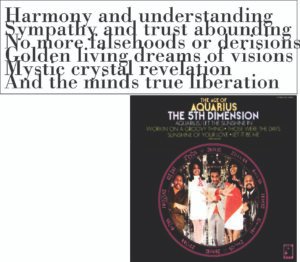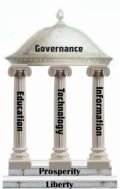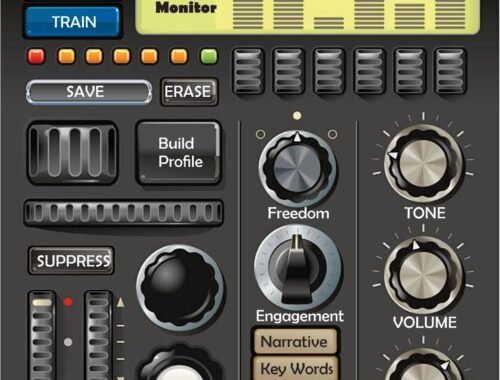
Virtue-Based Leadership, Part 1
Abstract: During my doctorate in Leadership and Learning in Organizations at Vanderbilt, there were a few readings and discussions over whether there is even such a thing as a “leader” or “leadership”. This is related to the discussion over whether leaders are born—they have innate characteristics and capabilities—or made—they are developed, trained and educated. The leadership training industry makes millions through books, training programs, and, to be quite frank, some gimmicks. This series proposes a virtue-based framework for leadership development programs that, hopefully, are not gimmicks. My working assumption is that leaders are like diamonds: they are born a leader but must be shaped worked to bring out the potential and guide their development.

This series starts out with lyrics from one of my favorite songs from the 1960s, The Age of Aquarius, by the 5th Dimension. Note the reference to no more falsehoods or derisions and harmony and understanding. These are foundational elements of effective leadership. They drive truth and trust, which drives integrity, which is vital to a leader, or any other person, for that matter. Interestingly, the mind’s true liberation is the ability to see through memes to the puppet master that propagates them. These elements are perhaps even more important now than when the 5th Dimension sang about them. They speak to critical thinking and morality, which are the bedrock of effective leadership, as well as team building (harmony). As the world gets more complex and interrelated, these abilities get more important.
I’ve written extensively about virtue. The Related Posts section has a list of many of them. In DOGE—Killer Clowns and Virtue, Virtue Leadership and Power, and Virtue and Courtesy, I worked with the cardinal virtues and loosely built a virtue-based framework. This series builds upon these posts to build an effective framework for virtue-based leadership. This first post outlines the principal elements of the framework.
The framework starts with an effective education system and education starts with the family before the child starts school. Education delivers two key products. First, it should teach critical thinking and how to develop and use information to turn it into knowledge. Second, it should develop the person’s moral framework. I’ve written extensively on critical thinking (see, for example, Critical Thinking: Introduction to Key Components and Dimensions, Critical Thinking: Logic and Rationality, and Critical Thinking: Decisions and System1 System2 Thinking) so I will not dwell on it too much in this series. Subsequent posts will look at education and morality, specifically frameworks from Erikson, Piaget, and Kohlberg for moral and cognitive development. Critical thinking and moral development are the critical foundation for effective leadership. For now, let us think about verywellmind’s definition:
“Moral development is the process by which people develop the distinction between right and wrong (morality) and engage in reasoning between the two (moral reasoning).”
This moral development is critical for effective leaders. Leaders, not tyrants. Tyrants can get things done, but at an enormous cost. Think of moral development as the superconductive material of leadership.
Virtue, as depicted by the four women in the framework, is the lens through which we view people and situations. It can also be a set of filters through which we gather data and react to it, along the lines discussed in Critical Thinking: Logic and Rationality. We all have filters and lenses. Our experiences, education, and brain structure (see biogenetic structuralism and other related concepts, which essentially say we are what we are and, taken to its extreme, that moral development does not really exist.) This closely relates to the nature versus nurture debate and the discussion regarding the existence of the mind as distinct from the brain. The debate over whether leaders are born or made is highly related to this concept. Spoiler: I think it is both.
Related Posts:
Virtue: The Missing Enabler of the Republic
Ethics, Morality, and Virtue: Relative vs. Absolute Meaning
Virtue and Operant Conditioning
Standards are the Raw Materials of Virtue: He Who Controls the Standards, Controls Behavior
Do Oaths Have any Meaning Anymore?
Politics, Politicians, and Demonic Possession
Virtue and Pandora’s Box: Effective Policy
Ethics, Morality, and Virtue: Relative vs. Absolute Meaning
Virtue: Religion and Philosophy, What does the Founders’ Vision Embrace?
Communism’s Dirty Secret (and Capitalism’s and Democracy’s as Well)
The Grand Inquisitor on the Nature of Man: Totalitarian vs. Liberty






4 Comments
Pingback:
Pingback:
Pingback:
Pingback: